Revolutionary Turned Critic Says Islamic Republic Overthrow Imminent
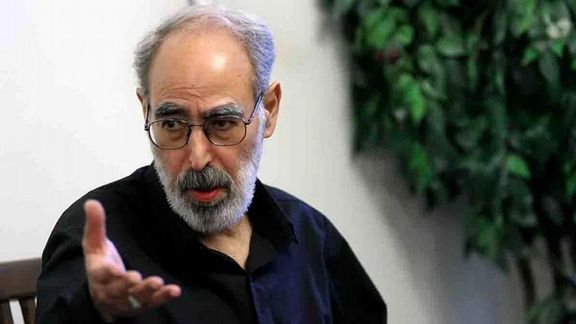
A regime critic slammed the execution of protesters by the regime, saying the overthrow of the Islamic Republic is "not far away."

A regime critic slammed the execution of protesters by the regime, saying the overthrow of the Islamic Republic is "not far away."
The Islamic revolutionary turned regime critic, Abolfazl Qadiani (Ghadyani) said in a message that the most peaceful and non-violent way to change the system is for Supreme Leader Ali Khamenei to "resign and surrender to the nation.”
“Khamenei should repent and seek forgiveness and get out of the way of the nation so that the people can establish their desired system by holding a free referendum, which I believe is a secular democratic republic based on human rights," he said.
The political activist added that the solution is peaceful, non-violent revolution.
Qadiani belonged to a leftist, revolutionary group that was supporting Khamenei until the disputed presidential election of 2009, when the Supreme Leader backed the questionable reelection of Mahmoud Ahmadinejad. Qadiani, with many others, protested the results and was jailed to become an opposition figure.
As part of his open letter, Qadiani strongly slammed the execution of three demonstrators Majid Kazemi, Saeed Yaghoubi and Saleh Mirhashemi.
“Such crimes make people more infuriated and more determined to overthrow the bloodthirsty dictator and his suffocating system,” added Qadiani.
Qadiani has recently accused Ali Khamenei of being the main suspect in the poisoning of schoolgirls across the country, saying he is taking a "revenge" against the "Woman, Life, Freedom" movement.
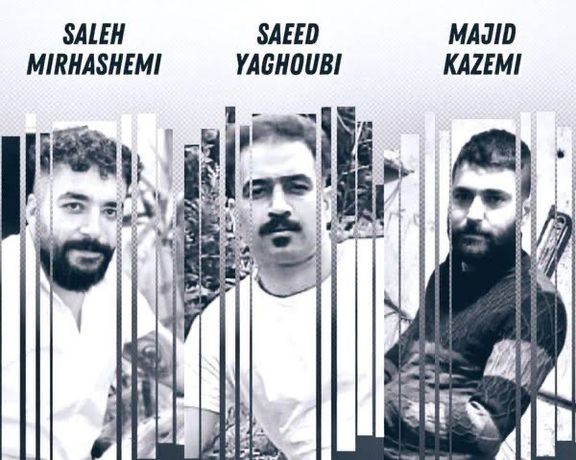
Dozens of political and civil activists, as well as a number of trade unions, protested the execution of three protesters in Esfahan (Isfahan).
In a statement issued online on Monday, they said “These executions will not affect our determination to end the oppression, inequality and gender apartheid against the oppressive regime that tortures, intimidates, and hangs.
“We have heard the message of our loved ones who sought help from prison and said: ‘Don't let them kill us’ and we loudly tell the regime: ‘We will not let you kill our youth anymore'."
Parents of victims killed by the Islamic Republic have also signed the letter along with major industries including Kermanshah Electric and Metal Society, Avant-Guard Students, Alborz Painters Syndicate, Kermanshah Electrical and Metal Workers Syndicate, Iran Retirees Council and the Oil Contract Workers.
The clerical rulers killed three demonstrators Majid Kazemi, Saeed Yaghoubi and Saleh Mirhashemi on Friday. Protests outside the jail where they were held and outraged calls by the international community failed to halt the Islamic Republic's execution machine. The deaths brought to at least seven the number of protesters hanged since nationwide protests broke out in September 2022 following the death in custody of 22-year-old Mahsa Amini.
The three were convicted over the death of two IRGC’s Basij militia members and a police officer during protests in November last year, in what Persian media have dubbed the ‘Esfahan (Isfahan) House’ case, named after the area, where they were arrested. Human rights campaigners say they were tortured into confessions, and there was no reliable evidence against them.
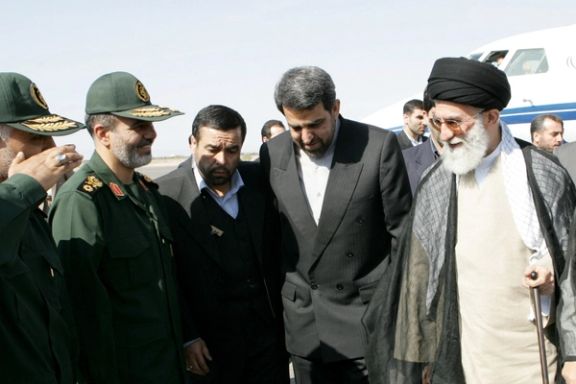
Iran's Security Chief Ali Shamkhani has stepped down with President Ebrahim Raisi appointing a heavily sanctioned Revolutionary Guards commander as his replacement.
Shamkhani, who served as the secretary of Iran’s Supreme National Security Council (SNSC) for almost a decade, was replaced by Ali Akbar Ahmadian, an IRGC chief of the Joint Staff in the 2000s who later headed the Guards’ strategic center.
In recent months there were rumors about Shamkhani stepping aside as hardliners blamed him for failure to suppress protests. In video-taped remarks released on the internet in November, former lawmaker Hamid Rasaei, a hardliner cleric, accused him of failing to quash protests.
He will be replaced by Ahmadian, a natural born IRGC commander, designated by the UN Security Council in March 2007 and listed by the European Union in April 2007. By October same year, he was added to the Specially Designated Nationals (SDN) list of the US Department of the Treasury. He is also sanctioned by the governments of Australia and Japan.
It is unclear if Shamkhani resigned or was pushed. A long-time ally of the Supreme Leader appointed as the secretary of the SNSC in September 2013, he has been instrumental in shaping the regime’s security policies during his tenure. The rear admiral upper half (two-star general) was the only ethnic Arab Iranian in such a senior position and was active across the whole political sphere in the Islamic Republic since its establishment.
Shamkhani was engaged in an armed struggle against the Pahlavi dynasty as a member of a clandestine Islamist guerrilla group, Mansouroun, and joined the IRGC shortly after the Islamic Republic’s formation in 1979. He served as deputy commander of the Guards from 1981 to 1988 and as defense minister under two-term reformist president Mohammad Khatami from 1997 to 2005.
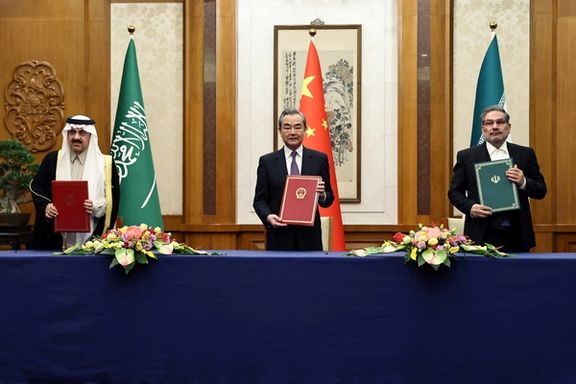
Like most regime insiders, he has been dogged by scandal, including reports about Shamkhani’s sons -- Hassan and Hossein -- owning dozens of businesses, such as large shipping companies. There have also been reports about the extravagant lifestyle of his family members in Iran and abroad. Following “rumors” that even his toddler grandson has hundreds of thousands of dollars in just one bank account as well as several properties, authorities announced that the bank account was blocked. Iran International’s investigative journalist Mojtaba Pourmohsen has published several exposés about the family corruption, including his nephews Mo’ud and Naji Shamkhani.
His final legacy was the China-brokered détente with Saudi Arabia. Saudi Arabia had severed relations with the Islamic Republic in January 2016 after pro-government Iranian mobs attacked and ransacked its embassy in Tehran and consulate in Mashhad following the execution of a Saudi Shiite cleric.
After Shamkhani signed the agreement to end a years-long political rift with Saudi Arabia in Beijing on March 10, he embarked on regional trips to improve strained relations with Arab neighbors. Visits to the UAE and then Iraq were part of the effort to keep up the momentum.
Journalist Ehsan Mehrabi told Iran International that the sidelining of Shamkhani is that Khamenei wanted someone with a less scandalous career for the job. He added that although Ahmadian -- the new security chief – played a key role in the Islamic Republic’s naval mining of the southern waters of Iran, he mostly kept a low political profile, hardly appearing in the media or delivering speeches.
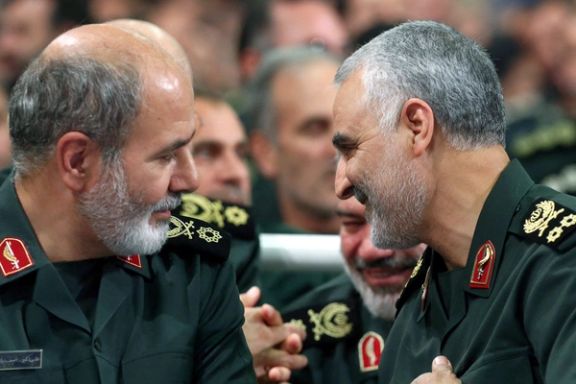
The pundit also believes that Khamenei and Raisi may also seek to prevent Shamkhani winning any further credit for Tehran’s upcoming diplomatic gains after the restoration of ties with Riyadh, perhaps with Egypt on the agenda.
Speaking to Iran International, political commentator Morteza Kazemian suggested the new security chief will likely expand focus on the regime’s security policy to Iran’s regional proxy forces, holding views similar to those of Qassem Soleimani, the former commander of the IRGC’s extraterritorial Quds Forces killed by the US in Baghdad in 2020. The long-time IRGC loyalist even served as the head of the Imam Hossein University, where Iran recruits and trains Revolutionary Guards.
He is also of the opinion that Raisi assigned Ahmadian for the job under the orders of Khamenei, who recently also appointed the IRGC commander as a member of the country’s Expediency Discernment Council, an administrative assembly whose members are appointed by the Supreme Leader.
Speculation continues over whether or not the personnel change will lead to real policy shifts, some even suggesting Shamkhani might be considered for a "more important position" in Iran, especially considering a parliamentary election on the horizon. Whatever the reasons, Shamkhani’s departure may indicate the regime is heading toward an ever-more conservative direction, reshuffling anyone even deemed moderately centrist.
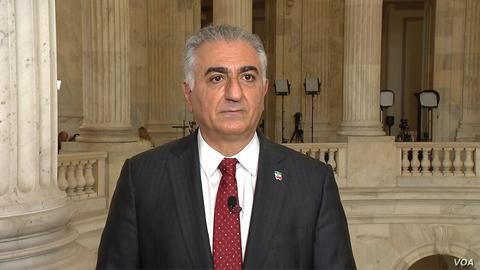
Iran’s exiled prince has blamed state "terrorism" for the killing of five border guards in the southeastern province of Sistan and Baluchestan on Saturday.
In a post on Twitter, Reza Pahlavi said: “I express my sincere sympathy with and condolences to the families of these murdered soldiers and strongly condemn this act of terrorism,” he added.
The border guards spotted a group of armed men near the border in Saravan, in the southeastern province of Sistan and Baluchestan. The five officers were killed in the ensuing confrontation with the “terrorist group” on Saturday night.
Two other guards were left seriously injured and are in a critical condition, it was also reported.
There is no information about the affiliation of the armed group, but several Baluch groups from the area are fighting an insurgency against the Islamic Republic.
The most prominent is Jaish al-Adl, which has often targeted Iran's military, especially the Islamic Revolutionary Guard Corps (IRGC).
In recent months, the situation in Sistan-Baluchistan has dramatically worsened. The area’s cities have become very tense, especially on Fridays, when residents come out to protest against the regime.
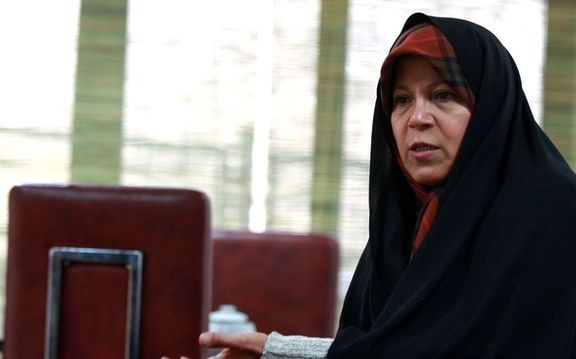
In a letter from Evin Prison, Faezeh Hashemi, harshly criticized Supreme Leader Ali Khamenei for unconstitutionally objecting to a referendum in Iran.
Iran International received a copy of the statement Sunday and verified its authenticity.
“Objection to a democratic provision of the Constitution by you is flabbergasting,” Hashemi, the daughter of Iran’s former president Akbar Hashemi Rafsanjani, wrote while criticizing the “extensive and systematic violation of Iranians’ citizen rights”.
“It appears that unwillingly you expressed what was in your heart for a long time in a surprising manner and without attempting to keep up appearances,” she said.
In a speech at a meeting with students on April 18, Khamenei strongly objected to suggestions to allow people to decide crucial matters through a referendum.
“[Who says] the country’s various issues can be put to referendum? Where in the world do they do that? [Who says] all the people participating in a referendum have the faculty of analyzing that matter? What kind of demand is that?” Khamenei had rhetorically asked.
In her letter, Hashemi responded to Khamenei’s questions by reminding him of Article 59 of the current constitution, which was approved by a referendum after the Islamic Revolution of 1979.
Article 59 stipulates that in extremely important economic, political, social, and cultural matters, the functions of the legislature may be exercised through direct recourse to popular vote by holding a national referendum.
She also enumerated some of the most recent referendums in other countries including in Britain’s 2014 (Scottish independence) and 2016 (Brexit) as well as Spain’s 2017 Catalan independence referendums.
“How is that Palestinians can decide the type of their government [through referendum] as you have proposed but not the Iranian people? She asked. “It seems that those who support you have the power of analysis and others lack such powers and are sometimes even traitors and mercenaries of foreigners?”
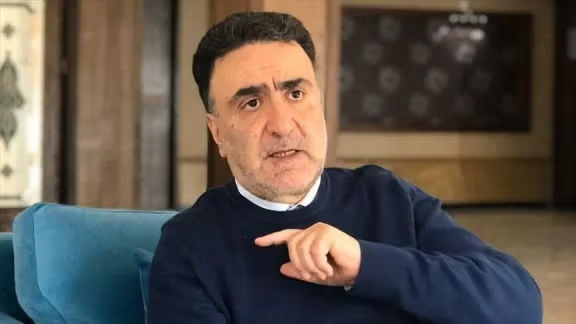
Faezeh Hashemi and several other political prisoners including former reformist Deputy Interior Minister Mostafa Tajzadeh and prominent political commentator and researcher in poverty, drug addiction, child abuse, and prostitution, Saeed Madani in a statement in February said they would do their best to advance the proposal to hold a referendum and a peaceful and non-violent transition to a completely democratic and developed political structure in the country.
“The only way out of the impasse for the government is to surrender to the right of the people to determine their own destiny,” they declared.
Former President Hassan Rouhani and others, mainly reformist politicians, have repeatedly suggested holding referendums on “important issues” in domestic and foreign policy.
On April 5, Rouhani for a second time since the beginning of nationwide protests in mid-September said the answer to people’s demands in the areas of foreign and domestic policies and the economy could be found by holding referendums as envisaged by the Constitution of the Islamic Republic.
In February, former Prime Minister (1981-1989) and leader of the 2009 Green Movement Mir-Hossein Mousavi, who was a reformist presidential candidate in 2009 and has been under house arrest since 2011, said in a statement dubbed “To Save Iran” that there was no hope of reforms and demanded a free and untainted referendum about the necessity for a new constitution.
Such a referendum could potentially put an end to Velayat-e Faghih (rule of the Islamic jurist) which gives a cleric such as Ali Khamenei extraordinary powers including the power to overrule all elected bodies and officials and hence, people’s choice.
Any request for such direct recourse to public opinion must be approved by two-thirds of the members of parliament according to the Constitution. This condition practically blocks any chance of a referendum as currently the parliament is dominated by hardliners and Khamenei loyalists.
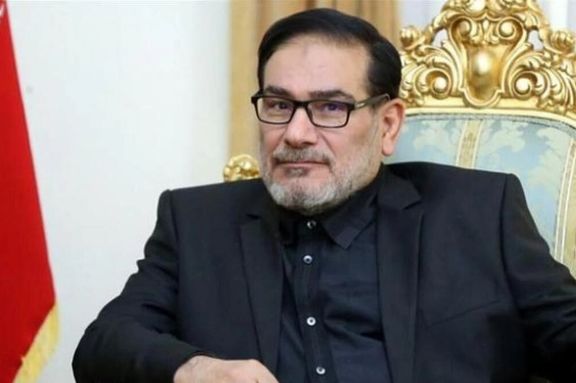
The resignation of Ali Shamkhani, Secretary of Iran’s Supreme National Security Council appears imminent, a website close to him reported late Sunday.
Nournews, believed to reflect Shamkhani’s views published a short news saying that a tweet by the long-time regime insider shows that his resignation is “certain.” The website did not provide any further details.
Official sources or government media have not reported or confirmed Shamkhani’s resignation.
Shamkhani was appointed in his position in 2013, Prior to that he was defense minister and commander of Iran’s army and IRGC navies. He was a member of the Revolutionary Guard from the early days of the revolution and has been serving as advisor to Supreme Leader Ali Khamenei.
In recent weeks there were rumors about Shamkhani stepping aside as Secretary of the security council, although he was dispatched to China in early March to sign an agreement with Saudi Arabia to restore diplomatic relations after seven years of tensions and frictions.
There have been many rumors and accusations about Shamkhani’s sons owning many businesses, including large shipping companies.
Other unconfirmed reports said that he will likely be replaced by Gen. Ali-Akbar Ahmadian, or perhaps by Gen. Rahim Safavi, both long-time high-ranking IRGC officers.
Ahmadian, 62, with the rank of Vice-Admiral served as Chief of Islamic Revolutionary Guard Corps (IRGC) Joint Staff in 2000s and later as head of IRGC’s strategic center.